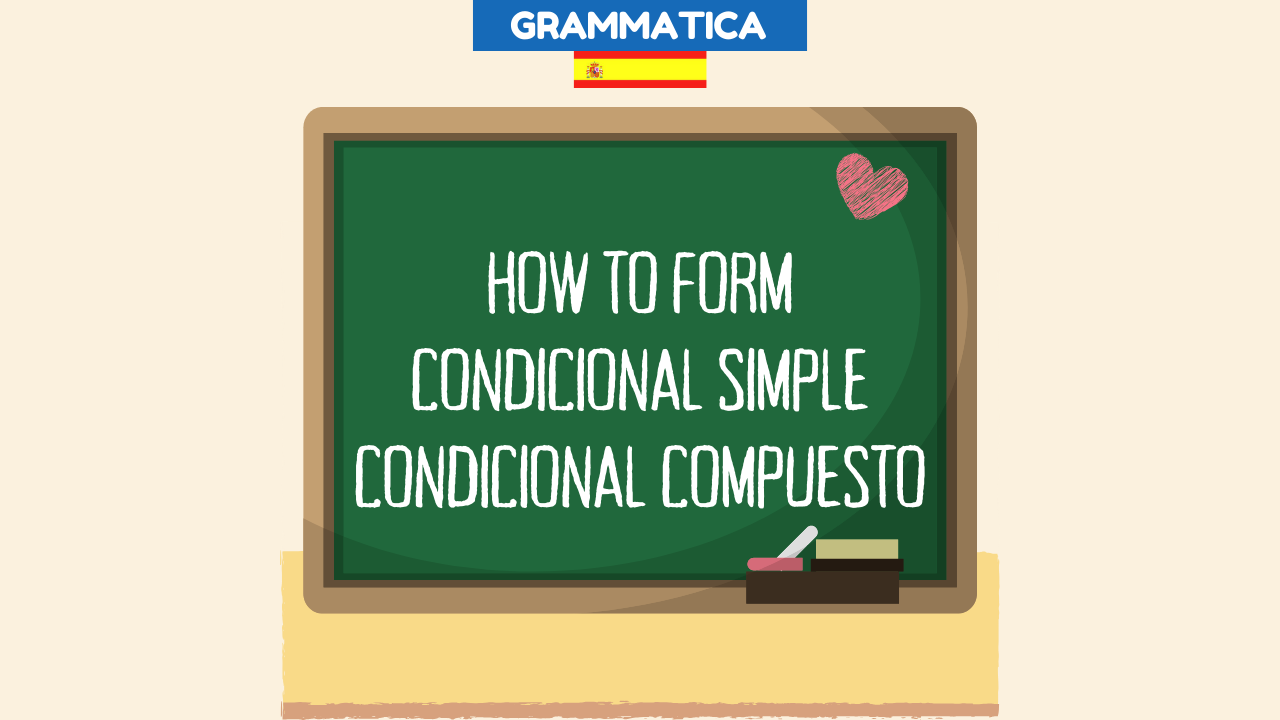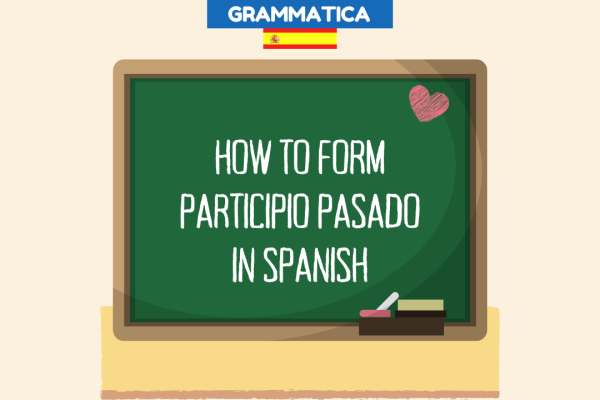Forming the conditional in Spanish, the condicional simple tense, is very… simple (pun intended)! And there are very few irregular verbs.
Condicional simple, how to form?
To form condicional simple you start with the verb in the infinitive tense. You take the whole verb, including the ending -ar, -er or -ir, and not just the root. And then you add the endings, which are the same for all three conjugations!
The endings are:
-ÍA,
-ÍAS,
-ÍA,
-ÍAMOS,
-ÍAIS,
-ÍAN
| Cantar | Comer | Vivir |
|---|---|---|
| yo cantaría | yo comería | yo viviría |
| tú cantarías | tú comerías | tú vivirías |
| él/ella cantaría | él/ella comería | él/ella viviría |
| nosotros cantaríamos | nosotros comeríamos | nosotros viviríamos |
| vosotros cantaríais | vosotros comeríais | vosotros viviríais |
| ellos cantarían | ellos comerían | ellos vivirían |
Condicional simple of irregular verbs
Completely irregular verbs
- DECIR doesn’t become
DECIRÍA, but DIRÍA (dirías, diría, diríamos, diríais, dirían) - HACER doesn’t become
HACERÍA, but HARÍA (harías, haría, haríamos, haríais, harían) - QUERER doesn’t become
QUERERÍAbut QUERRÍA (querrías, querría, querríamos, querríais, querrían)
Verbs where the E turns into D
► Now let’s look at some irregular verbs. The following verbs change the E of the ending to D.
So, PONER doesn’t become PONERÍA, but PONDRÍA (and pondrías, pondría, pondríamos, pondríais e pondrían)
Here is the list of verbs that behave this way
- PONER – PONDRÍA
- SALIR – SALDRÍA
- TENER – TENDRÍA
- VALER – VALDRÍA
- VENIR – VENDRÍA
Verbs where the E disappears
► These verbs instead drop the E of the ending.
So HABER doesn’t become HABERÍA, but HABRÍA
How to form condicional compuesto?
Very simple:
condicional simple of the verb HABER + past participle
yo habría cantado
tu habrías comido



